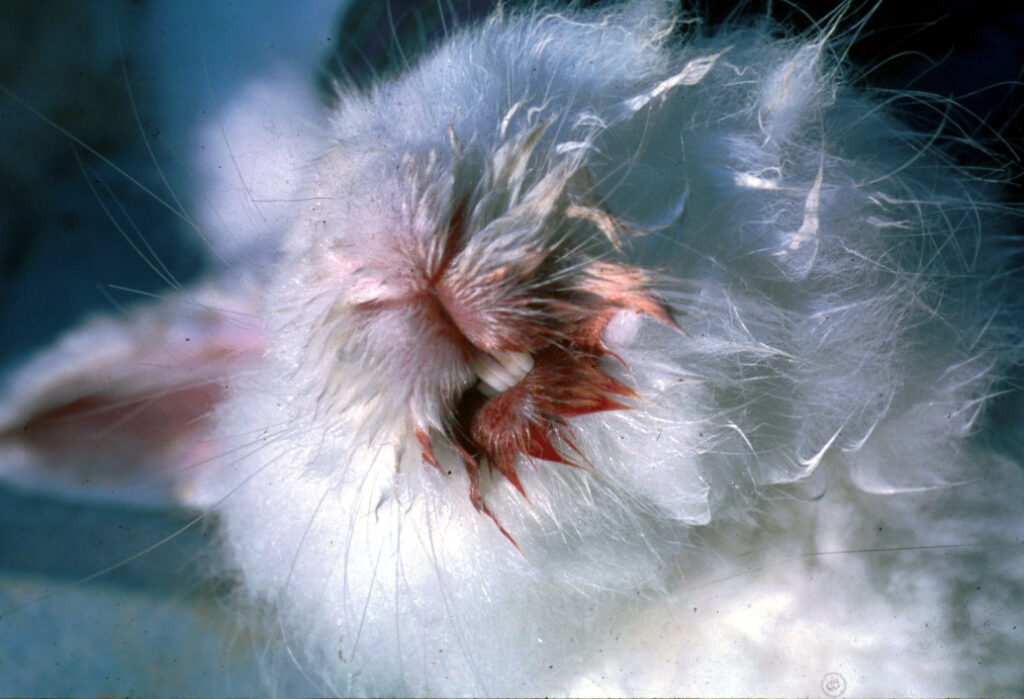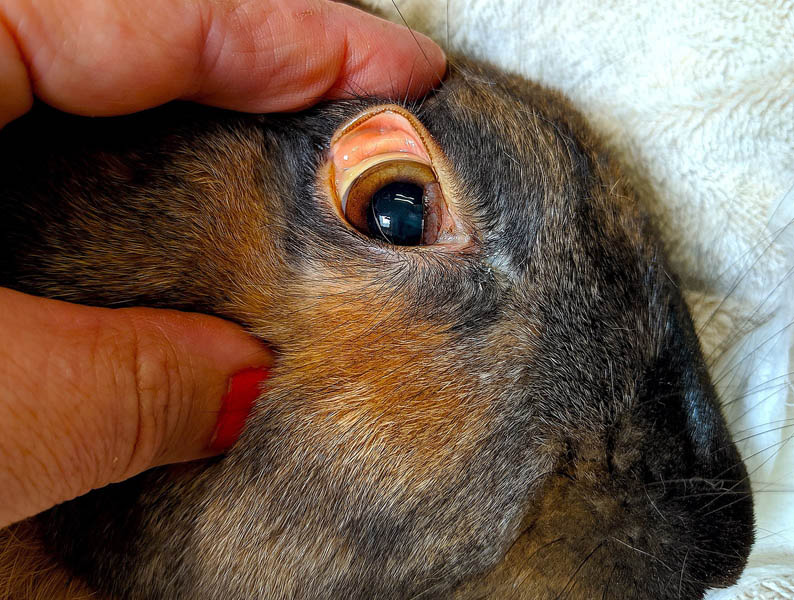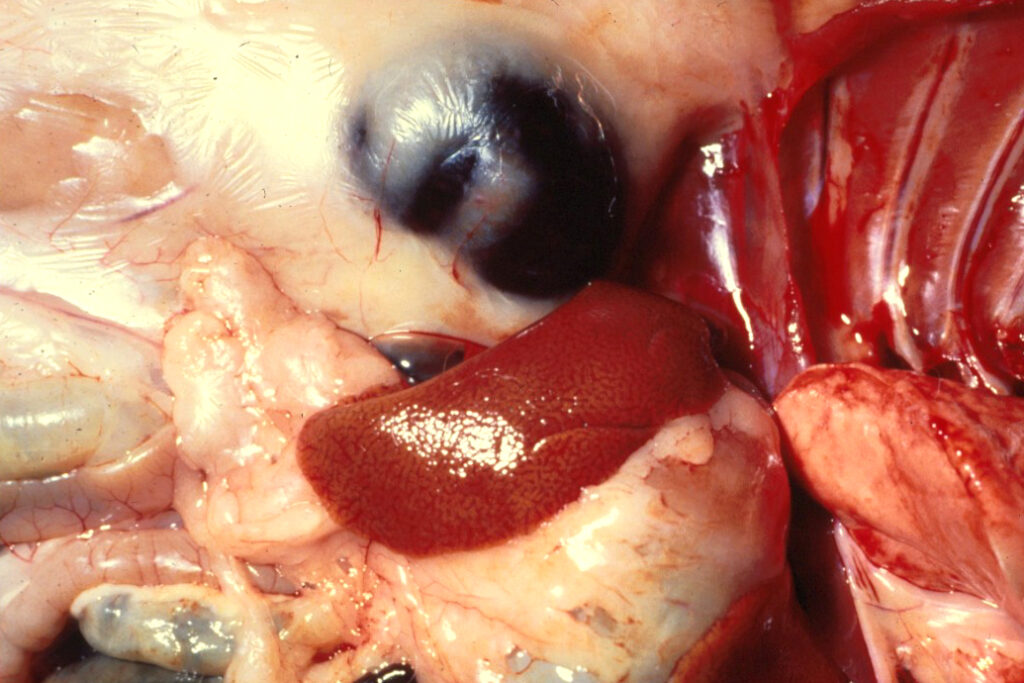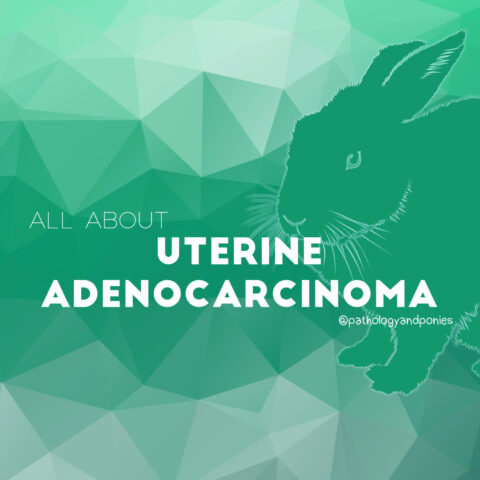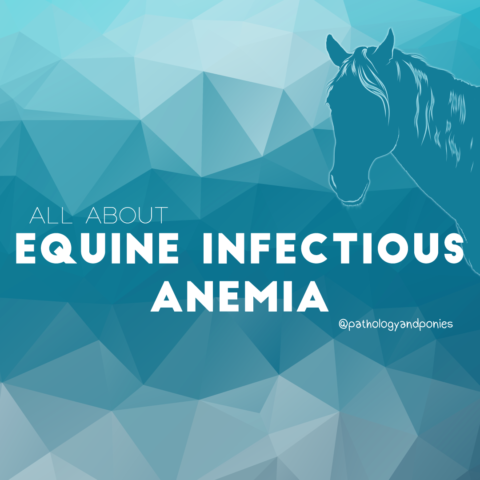Today’s path rounds are on 𝐫𝐚𝐛𝐛𝐢𝐭 𝐡𝐞𝐦𝐨𝐫𝐫𝐡𝐚𝐠𝐢𝐜 𝐝𝐢𝐬𝐞𝐚𝐬𝐞!
𝐖𝐡𝐚𝐭 𝐢𝐬 𝐢𝐭?
𝐑𝐚𝐛𝐛𝐢𝐭 𝐡𝐞𝐦𝐨𝐫𝐫𝐡𝐚𝐠𝐢𝐜 𝐝𝐢𝐬𝐞𝐚𝐬𝐞 is a viral infection of rabbits, as the name would suggest. This disease has been implicated in many massive mortality events in rabbits, with 90% of exposed rabbits dying from the disease.
𝐖𝐡𝐨 𝐠𝐞𝐭𝐬 𝐢𝐭?
This disease affects 𝐝𝐨𝐦𝐞𝐬𝐭𝐢𝐜 rabbits, such as pet rabbits and those in rabbitries. Many wild rabbit species are considered to be resistant to the disease.
𝐖𝐡𝐚𝐭 𝐜𝐚𝐮𝐬𝐞𝐬 𝐢𝐭?
RHD is caused by a 𝐜𝐚𝐥𝐢𝐜𝐢𝐯𝐢𝐫𝐮𝐬, which is a fairly uncommon virus family. The virus spreads by direct contact with infected rabbits, or exposure to viral particles in the air or on surfaces.
𝐖𝐡𝐲 𝐢𝐬 𝐭𝐡𝐢𝐬 𝐚 𝐩𝐫𝐨𝐛𝐥𝐞𝐦?
The biggest problem caused by RHD is 𝐝𝐢𝐬𝐬𝐞𝐦𝐢𝐧𝐚𝐭𝐞𝐝 𝐢𝐧𝐭𝐫𝐚𝐯𝐚𝐬𝐜𝐮𝐥𝐚𝐫 𝐜𝐨𝐚𝐠𝐮𝐥𝐚𝐭𝐢𝐨𝐧. This is a very complex condition, where the body’s normal balance between forming clots and breaking down clots is disturbed. This results in the animals having profuse bleeding from some tissues, and 𝐢𝐧𝐟𝐚𝐫𝐜𝐭𝐢𝐨𝐧 (blocked blood flow to a tissue) in other areas. The infarctions occur where blood clots have formed inappropriately, completely blocking a blood vessel. This ultimately results in 𝐧𝐞𝐜𝐫𝐨𝐬𝐢𝐬 (cell death) of the tissue that vessel normally supplies.
Clinically, these animals present with sudden death, and often have hemorrhage coming from their nose. Poor bunnies ![]()
𝐇𝐨𝐰 𝐢𝐬 𝐢𝐭 𝐝𝐢𝐚𝐠𝐧𝐨𝐬𝐞𝐝?
The disease can be diagnosed by identifying the virus’ DNA, or by showing that the rabbit has developed antibodies against the virus. However, the necropsy findings are fairly characteristic so the pathologist often has a good idea before proceeding with specific testing!
𝐇𝐨𝐰 𝐢𝐬 𝐢𝐭 𝐭𝐫𝐞𝐚𝐭𝐞𝐝? 𝐇𝐨𝐰 𝐢𝐬 𝐢𝐭 𝐩𝐫𝐞𝐯𝐞𝐧𝐭𝐞𝐝?
Unfortunately, there is no treatment. One of the best methods of prevention is disinfecting anything coming into contact with rabbits, in areas where RHD has been found. There are a few vaccines available now, however depending on your location they may be difficult to get. With outbreaks happening in new areas frequently, rabbit owners must be very diligent to protect their fluffy friends!
𝐏𝐡𝐨𝐭𝐨𝐬
1) A rabbit with the classic sign of RHD, blood from the nostrils.
2) A rabbit with 𝐢𝐜𝐭𝐞𝐫𝐮𝐬 (yellowing of the tissue) due to liver necrosis from RHD.
3) A sad, shrunken, necrotic liver, combined with a dark, infarcted kidney from RHD.
4) A kidney with pinpoint hemorrhages all over its surface.
5) Some very hemorrhagic and sad lungs.
𝐒𝐨𝐮𝐫𝐜𝐞𝐬
Terio, KA, McAloose, D, St. Leger, J. Pathology of Wildlife and Zoo Animals. 2018.
Photos 1, 3-5 © Noah’s Arkive contributors Gregg, King, Castillo-Alcala, Park licensed under CC BY-SA 4.0.
Photos 1, 3-5 © Wikimedia Commons contributor Rabbit Vet licensed under CC BY-SA 4.0.

